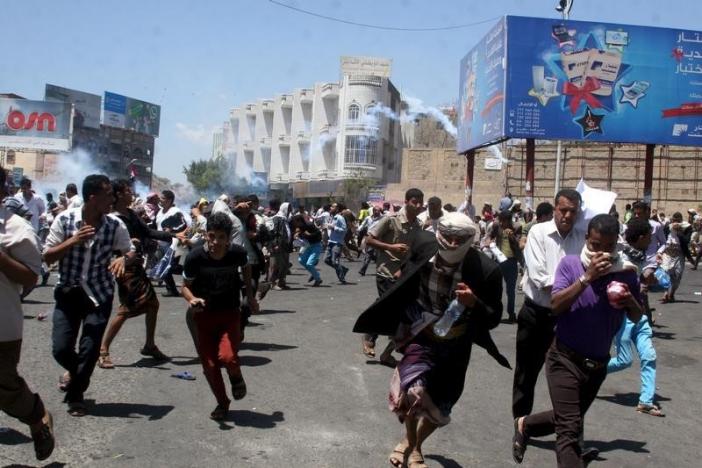Major-General Hassan al-Malsi, senior military officer of Yemen’s Houthi movement has been killed in clashes on the border with Saudi Arabia.
Masli, who was head of Houthi special forces, was killed on Thursday while attempting to infiltrate a squad of Houthi fighters into the Saudi Arabia’s southern province of Najran.
Houthi insurgents are always trying to infiltrate into Saudi border. Brigadier General Ahmed Hassan Asiri, adviser to the Defense minister’s office in Saudi Arabia and spokesman for the joint forces, said: “Attempts by the militias to infiltrate the borders of Saudi Arabia have not yet stopped,” he said.
“The Saudi border will never be part of any settlement in Yemen,” he added. He also pointed out that recruiting children and women is an attempt to achieve what former president Saleh wants.
A non-governmental rights organization revealed numbers of tortured and killed civilians inside the Houthis’ prisons and Saleh affiliated factions.
During the launch of National Campaign Against Torture of the National Organization for Humanitarian Development in Taiz, the report showed the number of human rights violations between July 2014 and September 2016.
The report showed that Dhimar comes first in torture, followed by Lahij and Ibb. The report also stated the number of deaths in militias’ prisons are mostly due to severity of torture.
The report also mentioned that the cases revealed are only the ones checked by the team, and do not include all torture cases in Yemen.
According to the report, there are 4698 torture cases in Yemen all over 17 governorates.
At the same time, an electronic campaign was launched using the hashtag: #stop_torture_in_Yemen in three languages: Arabic, English, and French.
The campaign aims to shed light on the tortures happening inside the Houthi and Saleh insurgents’ prisons against their opposition and political rivals.
Meanwhile, Tamdeen Youth Foundation launched a workshop to celebrate International Day of Peace.
The workshop entitled: “Social Impacts of Conflict in Taiz and Methods to Promote Social Peace and Coexistence” aims to find an objective diagnosis of the conflict in Taiz and its social impact.
The organizers presented with numbers the losses and negative results affecting the social fabric of the society.
Participants in the workshop offered a number of solutions that could limit the effect of war on local community.
